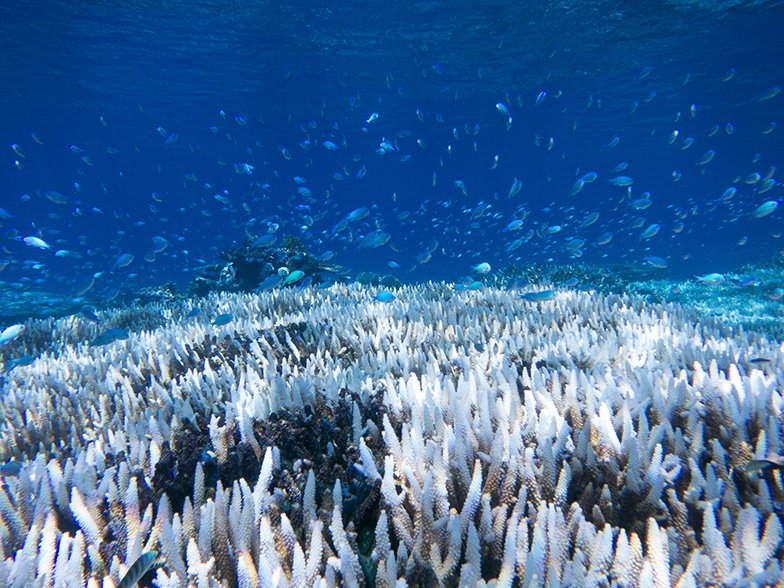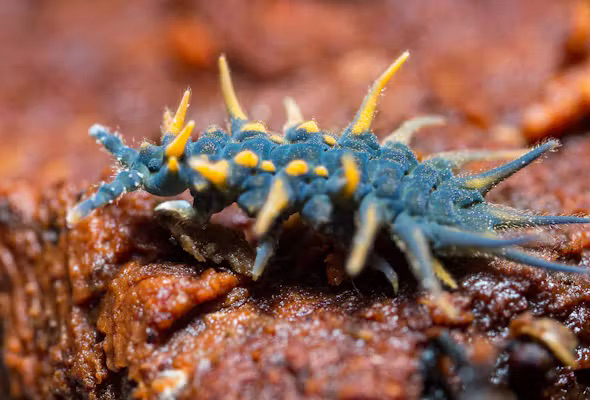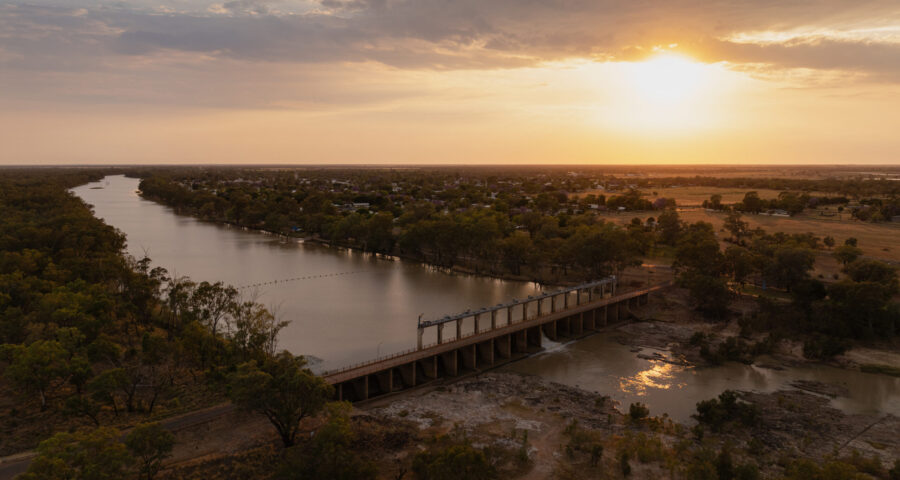Coral bleaching gene discovered

AUSTRALIAN SCIENTISTS HAVE uncovered specific genes that allow algae to withstand warmer temperatures and therefore avoid coral bleaching.
In a new study, published today in the journal Molecular Biology and Evolution, the researchers found that some algae use a mechanism to switch on genes, which produce certain proteins, in order to protect themselves from heat exposure.
RELATED: A close-up look at coral bleaching
“For the first time, we have uncovered the mechanism that explains why some algae can withstand higher temperatures and avoid bleaching,” said Rachel Levin, a PhD candidate at the University of New South Wales, who led the study.
“We found they can switch on genes to produce proteins that neutralise the toxic chemicals.”

The Great Barrier Reef suffered a record bleaching event last summer. (Image: Matthew Nitschke)
Gene markers for risk assessment
The researchers compared two types of algae from both warm and cool locations along the Great Barrier Reef in Queensland.
“We found that only the algae from the warmer reef can activate specific types of genes when under heat stress to counter the damaging effects of the reactive oxygen species,” said Rachel.
“The risk of coral bleaching in different areas on the Great Barrier Reef could be assessed by using these genes as markers.”
RELATED: Great Barrier Reef bleaching would have been impossible without climate change
In increased water temperatures, algae become stressed, causing them to produce toxic chemicals which damage both the algae and the corals they live in.
As a result, corals expel the heat-stressed algae, become bleached white, and starve to death unless recolonised by new algae.
A large part of the Great Barrier Reef has undergone bleaching this year due to unusually high sea surface temperatures, resulting in the loss of an estimated one quarter of corals.
“As marine systems are increasingly challenged by multiple environmental threats, it is critical that we not just describe the severity of those threats, but also understand the capacity of marine organisms and ecosystems to adapt to and overcome those threats,” said Peter Steinberg, Director of the Sydney Institute of Marine Science, who was also involved with the research.
Stressed algae become sexual
The study also found that algae under stress may switch from their normal asexual mode of reproduction to sexual reproduction.
“Sexual reproduction helps speed up evolution and may allow some algae to adapt quickly enough to tolerate the rise in sea surface temperature,” said Madeleine van Oppen, another co-author, from the Australian Institute of Marine Science and the University of Melbourne.
“This could be a natural ‘golden ticket’ that allows some corals to survive a bleaching event,” she said.
RELATED:




